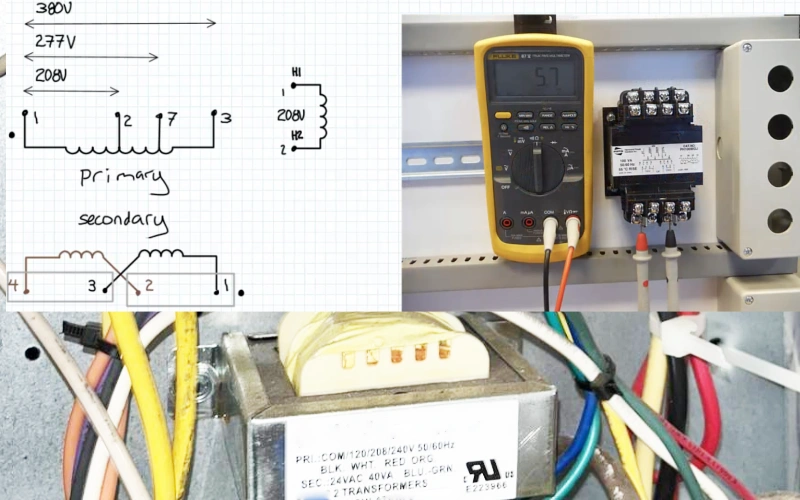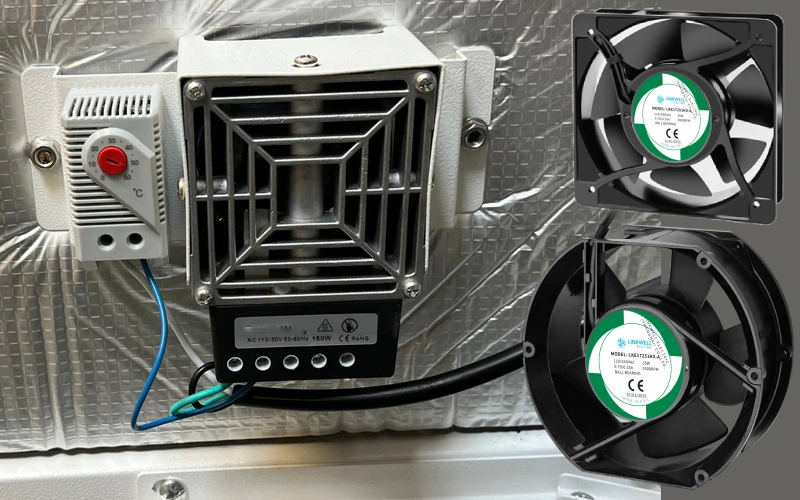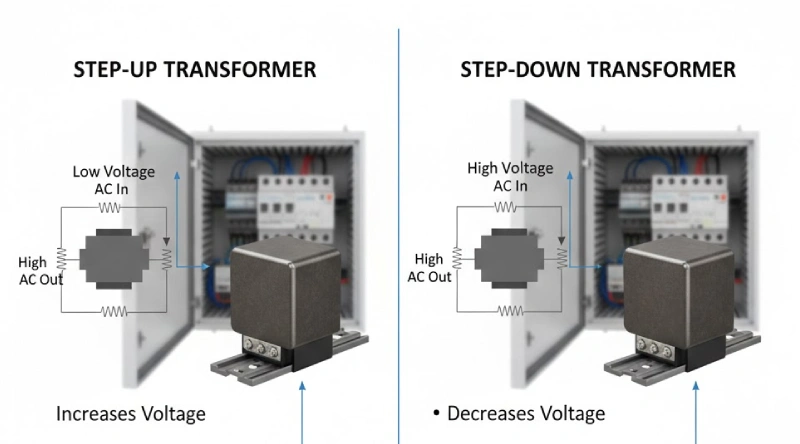So, what does btu mean for air conditioners? BTU stands for British thermal unit, which measures how much heat your air conditioner can remove from a space. Knowing the right btu helps you pick the perfect unit for comfort at home or for specialized jobs like cabinet cooling, where cooling power really matters.
Key Takeaways
- BTU stands for British thermal unit, measuring how much heat an air conditioner can remove from a space each hour.
- Choosing the right BTU rating is crucial for comfort and energy efficiency; too high can waste energy, while too low can lead to inadequate cooling.
- Use a BTU calculator to match your room size with the correct BTU for optimal cooling and lower energy costs.
What Does BTU Mean for Air Conditioners

BTU Definition and Cooling Power
When you ask, what does btu mean for air conditioners, you’re really asking about the heart of how these machines work. BTU stands for British thermal unit. This unit measures the amount of heat needed to raise the temperature of one pound of water by one degree Fahrenheit. In the world of air conditioning, BTU tells you how much heat your air conditioner can remove from a space every hour.
Think of BTU as the “muscle” behind your cooling system. The higher the BTU, the more heat your air conditioner can pull out of your room or enclosure. For example, a portable air conditioner with a higher BTU rating can cool a larger area faster than a smaller unit. But bigger isn’t always better. If you pick a unit with too many BTUs for your space, it might cool the air quickly but leave the room feeling damp or clammy. If you choose too few, your air conditioner will struggle and run constantly, driving up your energy costs.
Tip: Always check the BTU rating before buying an air conditioner. This number helps you match the unit’s cooling power to your needs, whether you’re cooling a bedroom or protecting sensitive electronics in a cabinet.
Why BTU Matters for Air Conditioner Performance
You might wonder why BTU matters so much for air conditioner performance. The answer is simple: the right BTU rating ensures comfort, efficiency, and savings. Manufacturers use BTU to measure how much heat an air conditioner can remove from a room per hour. This measurement is essential for sizing the unit correctly. If you live in a warmer climate, you may need a higher BTU rating to keep your space comfortable.
Here’s what you should know about BTU and performance:
- The BTU rating shows how much heat your air conditioner can remove each hour.
- Higher BTU ratings mean greater cooling capacity, but using a unit that’s too powerful can waste energy and increase your energy costs.
- Picking the right BTU rating is key for energy efficiency. An oversized unit may cycle on and off too often, which wastes energy and can lead to higher bills.
- Always balance BTU with energy efficiency. Look for models with high SEER2 ratings, which show the unit uses less energy while still providing strong cooling.
- Manufacturers consider local climate, room size, and insulation when determining the best BTU for each model.
In 2025, new technology has made air conditioners even more efficient. Many units now use eco-friendly refrigerants like R-454B and R-32, which help lower your carbon footprint. Smart controls let you monitor and adjust your cooling from anywhere, making it easier to save on energy costs. The updated SEER2 standard now requires a minimum rating of 15, so you get better efficiency with every new air conditioner.
Note: Regulatory changes in 2025 mean that air conditioners must meet higher efficiency standards. This affects how manufacturers set BTU ratings, making it even more important to choose a unit that matches your space and needs.
When you understand what does btu mean for air conditioners, you can make smarter choices. You’ll find the right balance between cooling capacity and energy costs, whether you’re shopping for your home, office, or a specialized enclosure.
Choosing the Right BTU for Your Space
BTU Sizing Guide for Rooms
When you start shopping for an air conditioner, you might wonder, “What does btu mean for air conditioners, and how do I pick the right one?” The answer starts with knowing your room size and matching it to the correct BTU. If you get this step right, you’ll enjoy better comfort and lower energy costs.
You can use a simple BTU calculator to estimate your needs. Just measure your room’s length, width, and height. Multiply these numbers to get the volume, then factor in insulation, windows, and climate. If you want a quick estimate, check out the table below:
| Room Size (sq ft) | Recommended BTUs |
|---|---|
| 100–200 | 4,000–6,000 |
| 200–300 | 6,000–8,000 |
| 300–400 | 8,000–10,000 |
For a more detailed look, here’s a chart showing average BTU requirements for different room sizes in 2025:

You’ll notice that as the room size increases, so does the BTU needed. If you live in a hot or humid area, you may need to bump up the BTU. Good insulation helps keep your cooling capacity in check, so you don’t overspend on energy costs. Poor insulation means you’ll need a higher BTU to keep things comfortable.
If you’re looking at a portable air conditioner, use the same BTU guidelines. These units work best when you match their BTU rating to your room size. Too much or too little cooling power can lead to problems, so always check the numbers before you buy.
Linkwell Cabinet Air Conditioner BTU Selection
Now, let’s talk about specialized cooling, like for electrical cabinets. Here, what does btu mean for air conditioners takes on a new level of importance. You need to protect sensitive electronics from overheating, so picking the right BTU is critical.
When you choose a Linkwell Cabinet Air Conditioner, consider these factors:
| Factor | Description |
|---|---|
| Heat Load | Add up the power usage of all equipment inside the cabinet. More power means more heat. |
| Cabinet Size | Bigger cabinets with more gear need more cooling. |
| Environmental Conditions | Outdoor cabinets face sun, rain, and dust. Indoor cabinets may have less stress. |
| Energy Efficiency | Look for high EER ratings to save on electricity while keeping things cool. |
The cooling requirements of your enclosure depend on the heat your equipment generates, the ambient temperature, and where you place the cabinet. If you get the BTU right, you’ll manage heat well and protect your electronics. Linkwell’s cabinet air conditioners come in different sizes and cooling capacities, so you can find the perfect fit for your project. If you’re unsure, reach out to Linkwell’s support team for help with calculations.
A portable air conditioner might seem like a quick fix, but it usually can’t handle the unique needs of electrical enclosures. Linkwell units are built for this job, with features like IP54/IP65 protection and smart controls for precise temperature management.
Effects of Incorrect BTU Choice
Choosing the wrong BTU for your air conditioner or cabinet unit can cause a lot of headaches. Here’s what can happen if you pick a unit that’s too powerful:
- The air conditioner cycles on and off too often.
- You waste energy and see higher energy costs.
- The room or cabinet feels damp because the unit doesn’t run long enough to remove humidity.
- You get uneven temperatures and poor comfort.
- The unit makes more noise and wears out faster.
An oversized air conditioner cools the air too quickly, which means it can’t remove enough moisture. This leads to a clammy feeling and can even cause mold or dust mites to thrive.
If you go with a unit that’s too small, you’ll run into different problems:
- The air conditioner runs all the time but never cools the space properly.
- Your energy costs go up because the unit works harder than it should.
- The system wears out faster, leading to more repairs or early replacement.
A portable air conditioner with the wrong BTU rating will struggle just like any other unit. Always match the BTU to your space or enclosure for the best results.
Remember, the right BTU means better comfort, lower bills, and longer-lasting equipment. Take the time to measure, calculate, and choose wisely—your comfort and your wallet will thank you.
You now know why BTU matters for air conditioners and cabinet cooling. Picking the right BTU gives you efficient cooling, energy savings, and steady comfort.
- Efficient cooling performance
- Energy savings
- Consistent comfort
- Improved comfort levels
- Enhanced energy savings
- Prolonged equipment lifespan
Use these tips and check out Linkwell Cabinet Air Conditioner solutions for your next project!
FAQ
How do I figure out the right BTU for my room?
You measure your room’s length and width. Multiply them to get square footage. Then check a BTU chart to match your space.
Can I use a regular air conditioner for my electrical cabinet?
No, you need a cabinet air conditioner. Regular units do not protect electronics from dust, humidity, or outdoor conditions.
What happens if my air conditioner’s BTU is too high?
Your unit cools too fast. It does not remove enough moisture. You might feel clammy or uncomfortable. Energy bills can also go up.




